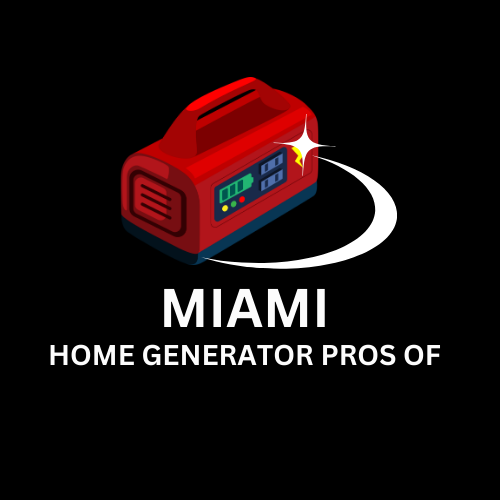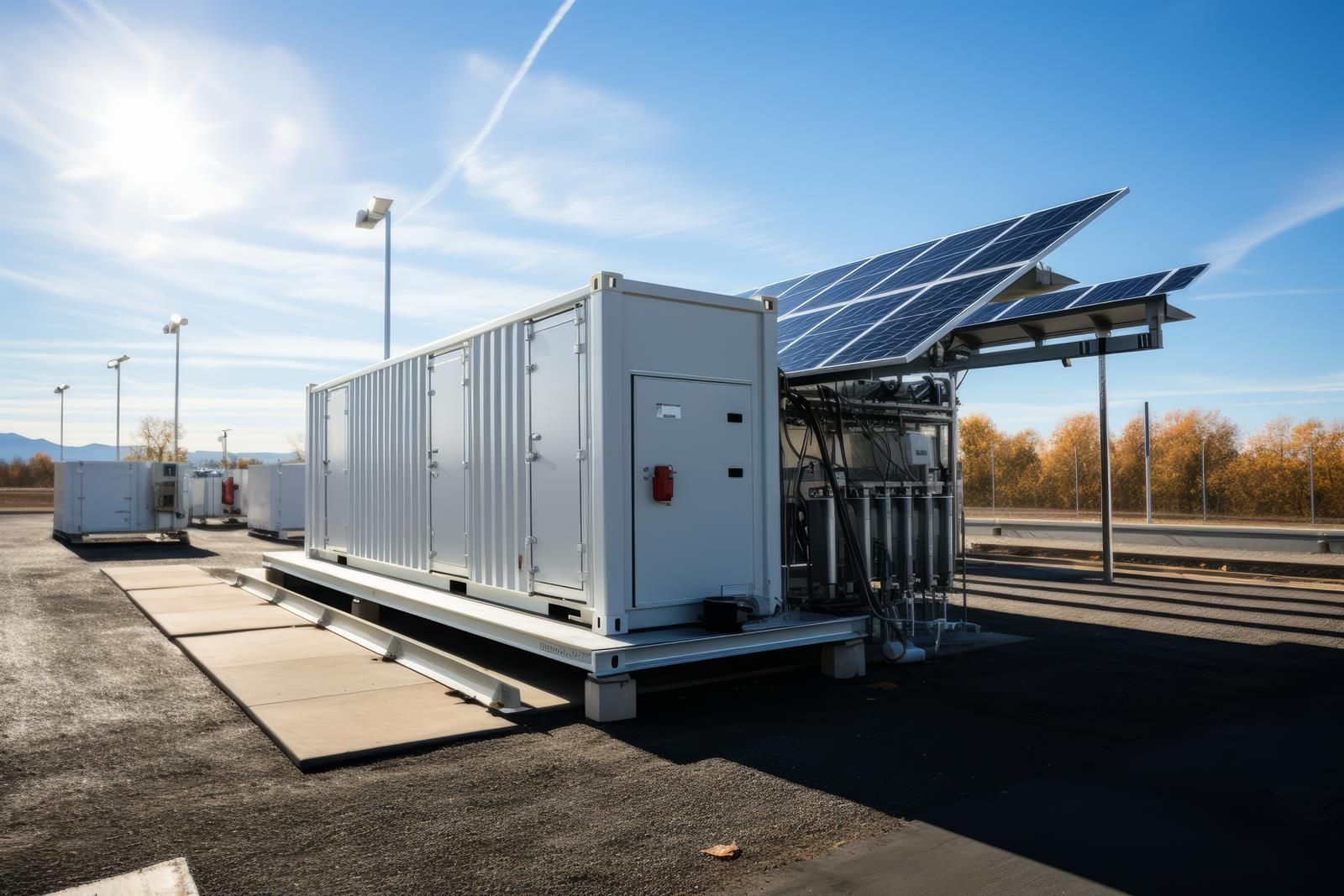
Solar Generators in Miami FL
A solar generator is a portable, eco-friendly device that harnesses the power of the sun to generate electricity. It consists of several key components: solar panels, a charge controller, a battery, and an inverter. Solar panels capture sunlight and convert it into electrical energy. This energy is regulated by the charge controller to prevent overcharging. The battery stores the energy for later use, and the inverter transforms the stored energy into usable electricity for your devices.
Types and Benefits
Solar generators come in various types, each with distinct advantages. Portable solar generators are compact and ideal for outdoor activities or emergency situations. They are easy to transport and set up. On the other hand, larger, stationary models offer more power and are suitable for backup energy during outages or as a primary power source in remote locations.
The benefits of using solar generators are numerous. They provide a clean, renewable source of energy, reducing dependence on fossil fuels. They are also low maintenance compared to traditional generators, as they have fewer moving parts and do not require fuel. Additionally, solar generators are quiet and produce no emissions, making them an environmentally friendly choice.
How It Works
The operation of a solar generator is straightforward. Solar panels collect sunlight and convert it into direct current (DC) electricity. This electricity flows through the charge controller, which manages the power flow to the battery, preventing overcharging and ensuring efficient energy storage. When you need electricity, the inverter converts the stored DC power into alternating current (AC), which is used to power most household appliances and electronic devices.

We will get back to you as soon as possible.
Please try again later.
Setting Up a Solar Generator System
Setting up a solar generator system involves a few essential steps. First, choose a location for your solar panels that receives ample sunlight throughout the day. Mount the panels securely, ensuring they are angled to maximize solar exposure. Connect the panels to the charge controller using appropriate cables, following the manufacturer's instructions. Then, connect the charge controller to the battery and the inverter. Finally, plug your devices into the inverter’s outlets.
Regular Maintenance Tips to Ensure Optimal Performance
To keep your solar generator performing at its best, regular maintenance is crucial. Clean the solar panels periodically to remove dust and debris that can obstruct sunlight. Check the battery’s charge level and condition, and ensure it is properly connected. Inspect the cables and connections for any signs of wear or damage. Additionally, test the generator’s functionality regularly to ensure it is operating correctly and efficiently.
Troubleshooting Common Issues
Despite their reliability, solar generators can experience issues. One common problem is reduced power output, which may be caused by dirty solar panels or faulty connections. Ensure the panels are clean and check all connections. Another issue could be battery degradation, which affects energy storage. If the battery no longer holds a charge, it may need to be replaced. If you encounter persistent problems, consult the manufacturer’s troubleshooting guide or seek professional assistance.
Applications of Solar Generators
Solar generators are versatile and can be used in various applications. They are popular for camping and outdoor adventures, providing power for lighting, cooking, and charging devices. In emergencies, they offer a reliable backup power source during outages. Additionally, they are used in remote locations where access to the grid is limited, such as construction sites or cabins. Their ability to provide clean energy makes them a valuable tool for sustainable living.
Factors to Consider When Choosing a Solar Generator
When selecting a solar generator, consider several factors to ensure it meets your needs. Evaluate the power capacity to ensure it can handle the devices you plan to use. Consider the battery life and the type of battery used, as this affects how long the generator will provide power. Look at the portability of the unit if you need to move it frequently. Also, check the efficiency of the solar panels and the overall build quality of the generator. Reviewing customer feedback and product reviews can also provide valuable insights.
If you’re interested in investing in a
solar generator in Miami, FL or have any questions about our products and services, don’t hesitate to reach out. Our team is here to help you choose the right solar generator for your needs and provide expert support throughout your purchase and setup process. Contact us today to learn more and start your journey toward sustainable energy solutions.
How to Set Up and Use a Solar Generator
Solar generators are an excellent way to harness the power of the sun for your energy needs. Whether you’re preparing for an outdoor adventure, planning for emergencies, or just looking to reduce your carbon footprint, a solar generator can offer reliable, eco-friendly power. Setting up and using a solar generator might seem daunting at first, but with the right guidance, you can easily integrate it into your daily life. This guide will walk you through the steps to set up and use your solar generator effectively.

If you have any questions about setting up or using your solar generator, or if you need assistance with troubleshooting, don’t hesitate to reach out. Our team of experts is here to help you get the most out of your solar power system. Contact us today for personalized support and advice. We’re committed to ensuring you have a smooth and successful experience with your solar generator.
-
Unbox and Inspect Your Solar Generator
Start by carefully unboxing your solar generator. Ensure you have all the components, which typically include the generator itself, solar panels, cables, and user manuals. Inspect each part for any damage that may have occurred during shipping. If you find any issues, contact the manufacturer before proceeding.
-
Choose a Suitable Location
Select an ideal spot for your solar generator and solar panels. For the generator, place it in a well-ventilated area that’s dry and free from extreme temperatures. For the solar panels, position them in a location that receives ample sunlight throughout the day. The more direct sunlight they get, the more efficiently they will convert solar energy into power.
-
Set Up the Solar Panels
Mount the solar panels according to the manufacturer's instructions. Most panels come with mounting hardware and adjustable stands. Ensure the panels are angled to maximize their exposure to the sun. Typically, a 30-degree angle facing south is recommended in the northern hemisphere. Adjust the panels as needed to capture the most sunlight.
-
Connect the Solar Panels to the Generator
Once the panels are properly positioned, connect them to the solar generator using the provided cables. Usually, these cables have specific connectors that fit only one way, making it easy to attach them correctly. Follow the instructions in the user manual to ensure the connections are secure and correct.
-
Power Up Your Solar Generator
Turn on your solar generator and let it charge. Most solar generators have built-in indicators that show the charging status. Depending on the size of your solar panels and the amount of sunlight available, this process can take a few hours to a full day. Make sure the generator is fully charged before using it for significant power needs.
-
Connect Your Devices
Once your solar generator is charged, you can start using it to power your devices. Plug your appliances or electronics into the generator’s outlets. Be mindful of the generator’s wattage capacity to avoid overloading it. If you’re using it for emergency purposes, prioritize essential devices like phones, medical equipment, or small appliances.
-
Monitor and Maintain
Regularly check your solar generator and solar panels to ensure they are functioning correctly. Keep the panels clean and free of debris to maintain optimal performance. Monitor the generator’s battery level and recharge it as needed. If you notice any issues or reduced performance, consult the user manual or contact customer support for troubleshooting tips.
-
Safety Tips
Always follow safety guidelines when using your solar generator. Avoid placing the generator in wet or humid conditions, and never attempt to open or repair it yourself. Use only the recommended cables and accessories, and ensure all connections are secure to prevent any electrical hazards.
How to Maximize the Efficiency of Your Solar Generator
Solar generators are becoming increasingly popular as a reliable source of clean energy. They offer a sustainable way to power your home or business, especially during emergencies or power outages. However, to get the most out of your solar generator, it's important to maximize its efficiency. This means ensuring it operates at its best capacity and extends its lifespan. In this guide, we'll explore practical tips and strategies to help you achieve just that.
Proper Placement
The efficiency of your solar generator starts with its placement. Ensure that your solar panels are positioned where they receive maximum sunlight throughout the day. Typically, this means placing them in a location that is free from shadows cast by trees, buildings, or other obstructions. For optimal performance, aim for a spot that gets direct sunlight for the majority of the day.
Regular Cleaning
Dust, dirt, and debris can accumulate on your solar panels and reduce their efficiency. Regularly cleaning your solar panels is crucial for maintaining their performance. Use a soft cloth or sponge and a mild detergent to gently clean the surface. Avoid harsh chemicals or abrasive materials that might damage the panels. Cleaning your panels every few months or after severe weather conditions will help keep them functioning at their best.
Monitor Battery Health
The battery is a key component of your solar generator, and its health directly affects the system's overall efficiency. Check the battery regularly for signs of wear or damage. Ensure that connections are secure and that there is no corrosion on the terminals. Replace batteries as needed, following the manufacturer’s recommendations. Keeping the battery in good condition will help ensure that your solar generator remains efficient.
Use Energy Wisely
Maximizing efficiency also involves using the energy produced by your solar generator wisely. Be mindful of how and when you use power. For example, running high-energy appliances during peak sunlight hours can be more efficient than using them at night. You might also consider using energy-efficient appliances and lighting to reduce the overall energy demand.
Optimize Battery Charging
Proper battery charging is essential for maintaining efficiency. Avoid overcharging or undercharging the battery, as both can reduce its lifespan and efficiency. Follow the manufacturer's guidelines for charging and discharging the battery. Using a solar generator with a built-in charge controller can help manage the charging process and prevent issues related to battery health.
Regular Maintenance
Routine maintenance is key to keeping your solar generator operating efficiently. Schedule regular check-ups to ensure that all components, including the solar panels, battery, and inverter, are in good working condition. Address any issues promptly to avoid more significant problems down the line. Regular maintenance helps extend the lifespan of your equipment and keeps it performing at its best.
Upgrade Components
As technology advances, newer and more efficient components become available. Consider upgrading your solar panels, battery, or inverter to take advantage of these advancements. Higher-efficiency components can enhance the overall performance of your solar generator, providing better energy output and increased reliability.
Consider Solar Generator Accessories
Several accessories can help you get the most out of your solar generator. For instance, solar panel mounts or racks can help position your panels for optimal sunlight exposure. Battery storage options can provide additional capacity and flexibility. Invest in quality accessories that complement your solar generator and enhance its efficiency.
Understand Weather Conditions
Weather conditions can impact the efficiency of your solar generator. Cloudy or rainy days will naturally reduce the amount of sunlight your panels receive. Understanding how different weather conditions affect your system can help you plan your energy use more effectively. Keep an eye on weather forecasts and adjust your energy consumption as needed.
Maximizing the efficiency of your solar generator is essential for ensuring that you get the most value from your investment. By following these tips and regularly maintaining your system, you can improve its performance and extend its lifespan. If you have any questions or need assistance with your solar generator, don't hesitate to contact us today. Our team of experts is here to help you optimize your solar energy system and achieve the best results.
Let's Connect!
At Home Generator Pros, we understand the importance of having a reliable power source in your home. That's why we are committed to providing top-quality generator installation and maintenance services to our valued customers. Our team of experts is highly trained and experienced in all aspects of generator installation and servicing. So, if you want peace of mind during power outages, don't hesitate to hire us today. We'll keep your lights on and your appliances running smoothly, no matter what the weather may bring.